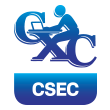In an effort to highlight the tangible benefits of the 12 new generation Caribbean Advanced Proficiency Examination (CAPE) subjects, CXC will focus on two new subjects monthly. This month we start with Performing Arts and Physical Education and Sport.
Performing Arts
Why is Performing Arts important?
The performing arts are part of the creative industries which have emerged to be a key growth sector in the Caribbean through its contribution to GDP, exports, and employment as well as its impact on destination and intellectual property branding.
As an industry the performing arts provide the opportunity for employment — creating many regional and global artists and events that have generated international reach beyond what the region’s size would suggest. The performing arts as part of the creative industries play a fundamental role in achieving social transformation and is critical to economic sustainability, while enhancing the region’s culture and quality of life.
How do you get started?
The CXC CAPE® Performing Arts syllabus focuses primarily on product development and management, the histories of the various performing arts, performance and production as well as techniques and skills. It consists of two units, each containing three modules. (See tables.)
Unit 1, Business for the Creative Arts, is intended not only to bring business practices and procedures to the production and management of the arts, but is also intended to teach specific art-related areas of knowledge and practice critical to the successful functioning of the business in the twenty-first century. The options in Unit 2, Theory, Practice and Innovation, provide continuity from the CSEC syllabus.
| UNIT 1 | |
| BUSINESS FOR THE CREATIVE ARTS | |
| Module 1 | Business Feasibility |
| Module 2 | Business Development and Planning |
| Module 3 | Project Planning for the Arts |
| UNIT 2 | |
| THEORY, PRACTICE AND INNOVATION
OPTION A: CINEMATIC ARTS |
|
| Module 1 | Tools and Theory |
| Module 2 | Process in Practice |
| Module 3 | Production |
| UNIT 2 | |
| THEORY, PRACTICE AND INNOVATION
OPTION B: DANCE |
|
| Module 1 | History and the Dancing Body |
| Module 2 | Technique and Performance Skills |
| Module 3 | Choreography and Performance |
| UNIT 2 | |
| THEORY, PRACTICE AND INNOVATION
OPTION C: DRAMA |
|
| Module 1 | Caribbean Theatre and the World |
| Module 2 | Forming the Performer |
| Module 3 | The Art of Performance |
| UNIT 2 | |
| THEORY, PRACTICE AND INNOVATION
OPTION D: MUSIC |
|
| Module 1 | Caribbean Music |
| Module 2 | Western European Art Music |
| Module 3 | Jazz |
Opportunity to win a Scholarship
…and Quantify Your Achievements in the Performing Arts
There are a few ways of highlighting your performing experiences, commitment and success as an artist on your college/university application or to a potential employer, and CXC continues to be a trusted resource to help quantify your achievement in the performing arts and will shortly be launching a regional competition to showcase work in the following categories:
- Best in dance
- Best in Drama
- Best in Short Film (5 min. max)
- Best in Music
It will be your opportunity to not only showcase your skills and talent but also to quantify your achievements through formal competition and gain the opportunity to win a scholarship. Look out for more details on devcxcedu.wpengine.com.
What’s next?
Careers in the Performing Arts
| Drama
1. Actor 2. Drama Teacher 3. Film, TV and Theatre Director 4. Agent for TV and Film 5. Drama Therapist 6. Broadcaster for TV and Radio 7. Producer for Theatre or Television 8. Artistic Director 9. Performance Co-ordinator 10. Production Manager |
Music
1. Musician 2. Conductor 3. Record Producer 4. Music Teacher in Preschool, Primary or Secondary School 5. Freelance Music Teacher 6. Music Therapist 7. Music Administrator 8. Singer, Singing Teacher 9. Composer |
Other
1. Dancer 2. Licensing and Royalty Collector 3. Festival Coordinator 4. Music Centre Co-ordinator 5. Concert Promoter 6. Music Publisher 7. Music Journalist 8. Tour Manager 9. Music Librarian 10. Instrument Technician 11. Sound Engineer 12. Cameraman 13. Lighting Designer 14. Special Effects 15. Researcher (Media) 16. Stage and Set Design 17. Costume Designer 18. Playwright 19. Screenwriter
|
Physical Education and Sport
Why is Physical Education and Sport important?
Physical Education and Sport is a complete phenomenon; it encompasses the healthy combination of body and mind, it is a major catalyst on various levels, such as social and economic. Of course, there is the vast awareness programme launched by the various international and local organizations which stress the importance of physical education and sports in contributing to a healthy and joyful life.
Today, however, physical education and sport is often organized, mechanized, marketed, and administered as a business. As a growing business, the corporate model of physical education and sport is entering into the organization of every sport entity and governing body.
- Athletes are encouraged to provide their services to contribute to the bottom line.
- Coaches are becoming supervisors of athletes.
- Players who are demonstrating a good work ethic and exemplary moral character are admired and held up as role models.
And then there are the financial benefits! As the industry continues to grow into an economic powerhouse, it is also attracting commercial interests that benefit from that power by influencing organization. The momentum that the sport industry gives to the country and to the region, the involvement that it requires, the partnerships that it demands all contribute to a certain socioeconomic boom.
How do you get started?
The study of CAPE ® Physical Education and Sport allows candidates to be exposed to an essential and integral component of a balanced, active and healthy lifestyle. Caribbean candidates with the knowledge, skills and competencies to undertake and sustain the development of the rapidly evolving sporting sector will have the opportunities that may lead to wealth creation by attracting investors, generating jobs and other economic activities.
By pursuing this course, candidates will use the scientific approach to develop decision-making, problem-solving and critical thinking skills. This syllabus is designed to provide candidates with in-depth knowledge and the competencies that are required for further studies and for the world of work, while making use of technology.
A. CORE
| UNIT 1 | |
| FUNDAMENTALS OF PHYSICAL EDUCATION AND SPORT | |
| Module 1 | Functional Anatomy and Training Theory |
| Module 2 | Sociological Aspects of Sport |
| Module 3 | Sport Psychology |
| UNIT 2 | |
| APPLICATION OF PHYSICAL EDUCATION AND SPORT | |
| Module 1 | Biomechanics |
| Module 2 | Sport Management |
| Module 3 | Technology and Innovation |
B. OPTIONS
Each candidate must choose ONE sport from Option A for Unit 1 and ONE sport from Option B for Unit 2.
| Option A | Option B |
| Dance | Basketball |
| Gymnastics | Cricket |
| Martial Arts/Combative | Football |
| Sports | Hockey |
| Swimming | Netball |
| Track and Field/Athletics | Rugby |
| Badminton | Volleyball |
| Golf | Softball |
| Squash | Baseball |
| Table Tennis | |
| Tennis |
Opportunity to win a Scholarship …and tackling NCDs and health and well-being
Look out for more details on devcxcedu.wpengine.com.
How do I get “moving” from here?
Physical activity and sport is one of the largest segments in the world economy. It includes the following:
- Leisure Centres and Sports Clubs
- Medical Treatment and Rehabilitation
- Research and Development
- Sport Tourism
- Sale and Trade of Sport Products
- Construction of Sports Venues
- Organization Sports Events
- Marketing and Advertising
Physical activity and sport development is proportional to economic development and is a major factor in the economic growth of a country. Sport development creates various job opportunities, such as the following:
- Managers
- Administrators
- Consultants and Advisers
- Sport Journalists and commentators
- Engineers and developers
- Coaches and Sport Doctors
- Producers and Retailers of Sports Goods and Equipment
- Various Suppliers and Providers













